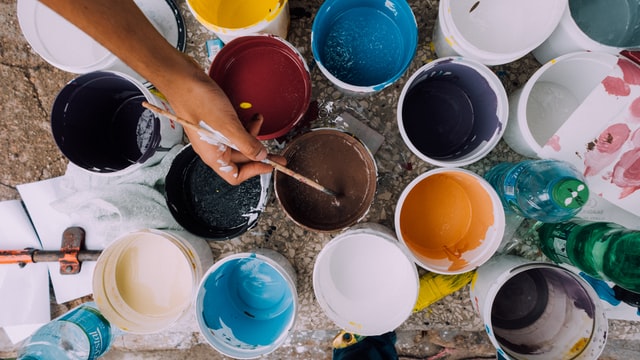One of the benefits of learning to paint is the boost in self-esteem you will feel when you finally complete your masterpiece. Other benefits include developing motor skills, increasing problem-solving abilities, and promoting critical thinking. If you’ve always dreamed of making your masterpiece, painting is the perfect way to start. Read on to discover the many benefits of painting! Below, you’ll learn about the essential benefits of painting.
Self-esteem boosts after finishing a painting
Do you believe that you can build your self-esteem by painting? Painting is one of the most enjoyable and self-affirming activities, and you will experience a huge boost in your self-esteem once you’ve completed the work. Here are some easy ways to build your self-esteem:
First, painting stimulates your creativity. It releases mental pressure and helps you unwind. Third, painting is a great way to feel happy and free from daily stress. A lower stress level leads to a happier life, and your self-esteem will soar. After all, who doesn’t want a better life? So, don’t wait any longer – get started today!
Develops motor skills
One of the many benefits of painting for children is the development of fine motor skills. This is important to developing school readiness and the ability to feed yourself. Painting allows children to develop these skills while enjoying an entertaining and educational activity. Painting can be a fun and educational activity whether the child is an early walker or a toddler. The following are three benefits of painting for children that make it an essential activity for early childhood development.
Children developing fine motor skills will benefit from a wide variety of activities. Art encourages free play and allows children to explore various materials. Self-directed explorations are fun and educational and will help children to grow into well-rounded young adults. In addition to fine motor skills, art will help children to develop their language skills and expand their vocabulary. Fine motor skills are important in writing and making marks, so it is crucial to build these early on.
Improves problem-solving abilities
Practicing the art of painting can be highly beneficial to your problem-solving skills—painting challenges you to think outside the box and overcome problems you might not have even considered. Painting has been proven to help people overcome real-life issues. Painting requires you to make various conscious choices and often come up with several solutions to a given problem. Likewise, artists must work with materials and constraints, which they have limited in their workspace. Dancers must also problem-solve to make partnering sections work.
Promotes critical thinking
The benefits of learning a painting skill go beyond the obvious aesthetic. While many academicians and administrators praise the concept of critical thinking, many painting professors have begun to question the value of this approach. Many believe that 150 years of modern art have erased the need to teach foundations. The resulting discourse has been fraught with rhetorical gobbledygook, and students are left with a misguided sense of what is not beautiful.
In addition to fostering creative growth, painting develops critical thinking and problem-solving skills. As an artist, you must think conceptually to bring multiple solutions to a design or painting. You must also be flexible with your artistic vision since it changes throughout the process. These creative problem-solving skills become second nature once you’ve acquired a painting skill. Aside from increasing your ability to solve problems, painting helps you to improve your memory.
Improves non-verbal communication
The art of painting is an important tool in recording human history, but it is not only about aesthetics. Moreover, painting is an excellent tool for conveying diverse stories and emotions symbolically, didactically, or in a more hidden mode. This article will look at how painting skills can improve your non-verbal communication. By learning to paint, you can increase your ability to communicate effectively with others.

